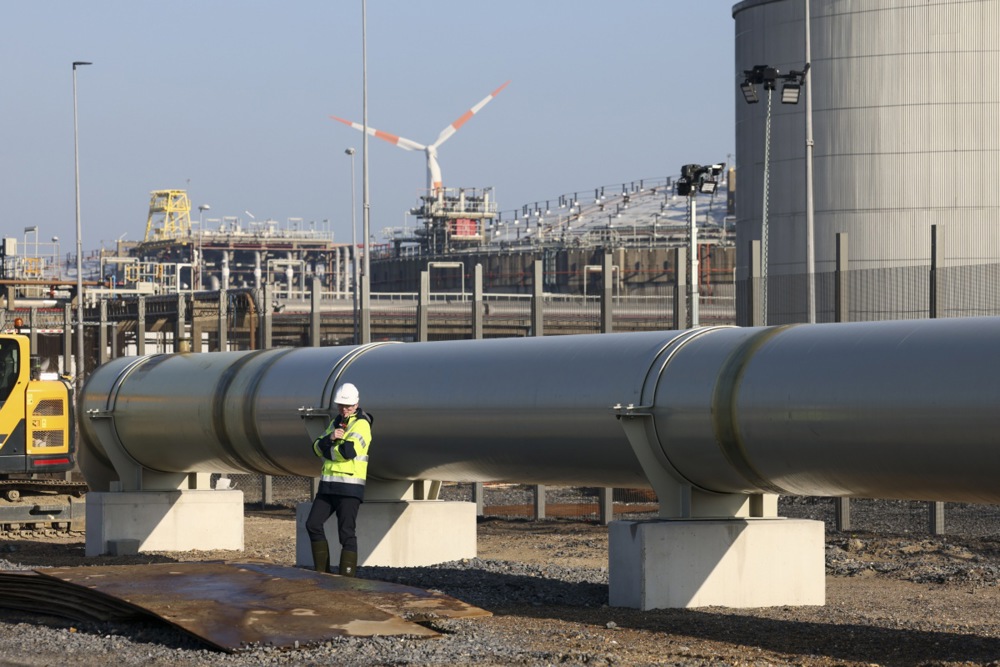Even while Belgium’s economy remains focussed on exports, its internal market suffers from excessive regulation, fragmented governance, and blurred public‑private boundaries, a new EU country report warns.
Belgium has for years outperformed the eurozone average in growth, but is increasingly flagged by international institutions for regulatory and structural weaknesses that may undermine that success.
According to the European Commission, 81 per cent of Belgian firms say complying with regulation is difficult, far above the EU average of 60 per cent.
Overlapping responsibilities across federal, regional, and local levels and lack of coordination among the three are a major drag on reform and innovation.
Belgium has a uniquely complex governance structure.
Powers are divided among the federal government and three regions: Flanders, Wallonia and Brussels.
Each of the four has its own parliament and competences over key economic levers, such as labour policy, economic development, and taxation.
The result can often be diverging rules and priorities even within the same national market.
The OECD’s 2025 evaluation, released earlier this year, echoed these concerns.
It described Belgium’s public sector footprint as “large and expanding,” with boundaries unclear between government and private activity.
The result, it said, is a business environment where productivity lags badly behind in highly regulated sectors like professional services, transport, and retail.
The NBB warned that exports in the coming three years could stop contributing to growth as they have thus far.
That is a threefold increase compared to 2000, and new legislation has surpassed 100,000 pages each year since 2017.
Legal experts and business associations refer to this as a form of regulatory inflation, complicating legal certainty and compliance for both domestic and international firms.
The issue is not just quantity but coherence, Hans Dewachter, chief economist at KBC Bank and professor of economics at KU Leuven, told Brussels Signal.
“Regulations weigh more heavily on productive capacity here than in other countries,” he said in an interview.
“Regulation is necessary—but it must not unnecessarily burden entrepreneurial initiative. And in Belgium, it often does,” he added.
The problem is compounded by labour market weaknesses.
“Our [labour market] participation rate is one of the most alarming signals,” Dewachter said. “We are not succeeding in engaging people in the workforce, especially in the context of an ageing population.”
Labour market policy is a regional competence, meaning employment incentives, training schemes and benefits vary across the three regions, often with little coordination or mobility between them.
While Belgium’s economy has grown modestly—by 1.0 per cent in 2024 and a projected 1.1 per cent annually through 2027 according to the National Bank of Belgium—that growth relies heavily on public debt.
This internal drag is beginning to show externally as well: Net exports are forecast to weigh negatively on growth over the next three years, according to the National Bank of Belgium.
Public debt, meanwhile, is forecast to rise from 105 per cent of GDP to nearly 113 per cent by 2027.
The public sector’s dual role as regulator and market actor also remains worrying, says the EU.
The Commission report described a lack of clear strategy for the core functions of government, with frequent interventions in sectors like energy, culture, and infrastructure.
Subsidies and direct competition with private firms blur market dynamics, it said.
Still, Belgium’s challenges are not unique within Europe, Dewachter noted.
“The effectiveness of our government is lower than in neighbouring countries, but we also see a general trend in the EU toward increasingly heavy regulation. That weighs on competitiveness EU-wide,” he said.
Belgium, though, may face a sharper version of that same challenge.
Unlike the EU, which lacks fiscal autonomy, Belgium’s fragmentation occurs at both institutional and budgetary levels.
“What happens in Belgium is an extension of EU dynamics,” Dewachter said. “But here, fragmentation exists in both policy and financing—fiscal, pensions, labour. It sits on top of everything else.”
While critical, the reports also acknowledge Belgium’s strengths: A resilient export base and strong innovation capacity.
But unless structural inefficiencies are tackled, Belgium risks losing its edge in an increasingly protectionist global economy.





